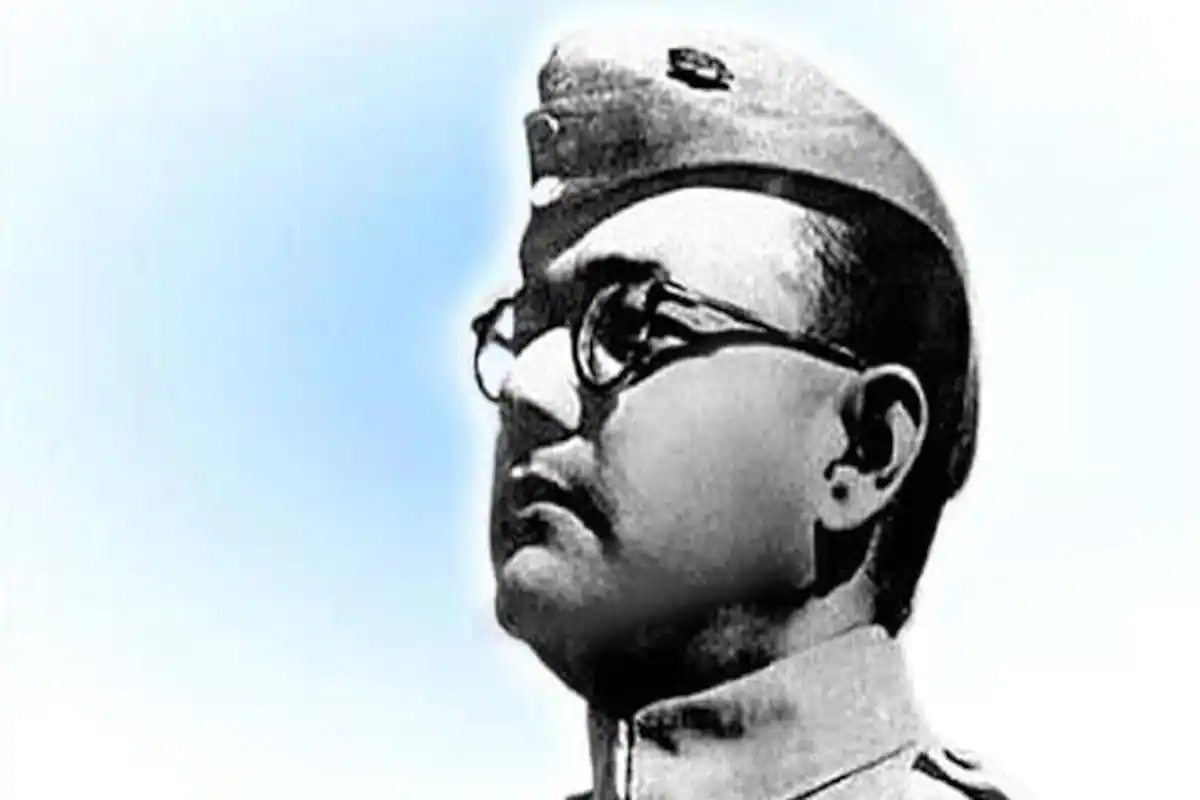Indian History
Netaji Subhas Chandra Bose
- 22 Jan 2022
- 5 min read
For Prelims: History of India and Indian National Movement, Netaji Subhas Chandra Bose
For Mains: Modern Indian History, The Freedom Struggle, INA & Subhash Chandra Bose, Netaji Subhas Chandra Bose and his contribution to freedom struggle
Why in News
Recently, the government has decided to install a grand statue of Netaji Subhas Chandra Bose at India Gate to commemorate his 125th birth anniversary and as part of the year long celebrations.
- The Subhas Chandra Bose Aapda Prabandhan Puraskars, for the years 2019, 2020, 2021 and 2022 in the investiture ceremony will also be conferred.
Subhas Chandra Bose Aapda Prabandhan Puraskar
- The annual Subhas Chandra Bose Aapda Prabandhan Puraskar has been instituted to recognize and honour the invaluable contribution and selfless service rendered by individuals and organisations in India in the field of disaster management.
- The award is announced every year on 23rd January.
- It carries a cash prize of Rs. 51 lakh and a certificate in case of an institution and Rs. 5 lakh and a certificate in case of an individual.
Key Points
- Birth:
- Subhas Chandra Bose was born on 23rd January 1897, in Cuttack, Orissa Division, Bengal Province, to Prabhavati Dutt Bose and Janakinath Bose.
- His Jayanti is celebrated as 'Parakram Diwas' on 23rd January.
- Subhas Chandra Bose was born on 23rd January 1897, in Cuttack, Orissa Division, Bengal Province, to Prabhavati Dutt Bose and Janakinath Bose.
- Education and Early Life:
- In 1919, he had cleared the Indian Civil Services (ICS) examination. Bose, however, resigned later.
- He was highly influenced by Vivekananda's teachings and considered him as his spiritual Guru.
His political mentor was Chittaranjan Das.- He worked as the editor for Das’s newspaper–Forward, and later started his own newspaper, Swaraj.
- Association with Congress:
- He stood for unqualified swaraj (independence), and opposed the Motilal Nehru Report which spoke for dominion status for India.
- He actively participated in the Salt Satyagraha of 1930 and vehemently opposed the suspension of Civil Disobedience Movement and signing of the Gandhi-Irwin Pact in 1931.
- In the 1930s, he was closely associated with left politics in Congress along with Jawaharlal Nehru and M.N. Roy.
- Bose won the congress presidential elections at Haripura in 1938.
- Again in 1939 at Tripuri, he won the presidential elections against Gandhi's candidate Pattabhi Sitarammayya. Due to ideological differences with Gandhi, Bose resigned and left congress. Rajendra Prasad was appointed in his place.
- He founded a new party, 'the Forward Bloc'. The purpose was to consolidate the political left and major support base in his home state Bengal.
- Indian National Army:
- He reached Japanese-controlled Singapore from Germany in July 1943, issued from there his famous call, ‘Delhi Chalo’, and announced the formation of the Azad Hind Government and the Indian National Army on 21st October 1943.
- The INA was first formed under Mohan Singh and Japanese Major Iwaichi Fujiwara and comprised Indian prisoners of war of the British-Indian Army captured by Japan in the Malayan (present-day Malaysia) campaign and at Singapore.
- The INA included both the Indian prisoners of war from Singapore and Indian civilians in South-East Asia. It's strength grew to 50,000.
- The INA fought allied forces in 1944 inside the borders of India in Imphal and in Burma.
- In November 1945, a British move to put the INA men on trial immediately sparked massive demonstrations all over the country.
- Death:
- He is said to have died in 1945 when his plane crashed in Taiwan. However, there are still many conspiracy theories regarding his death.





